Premium Only Content
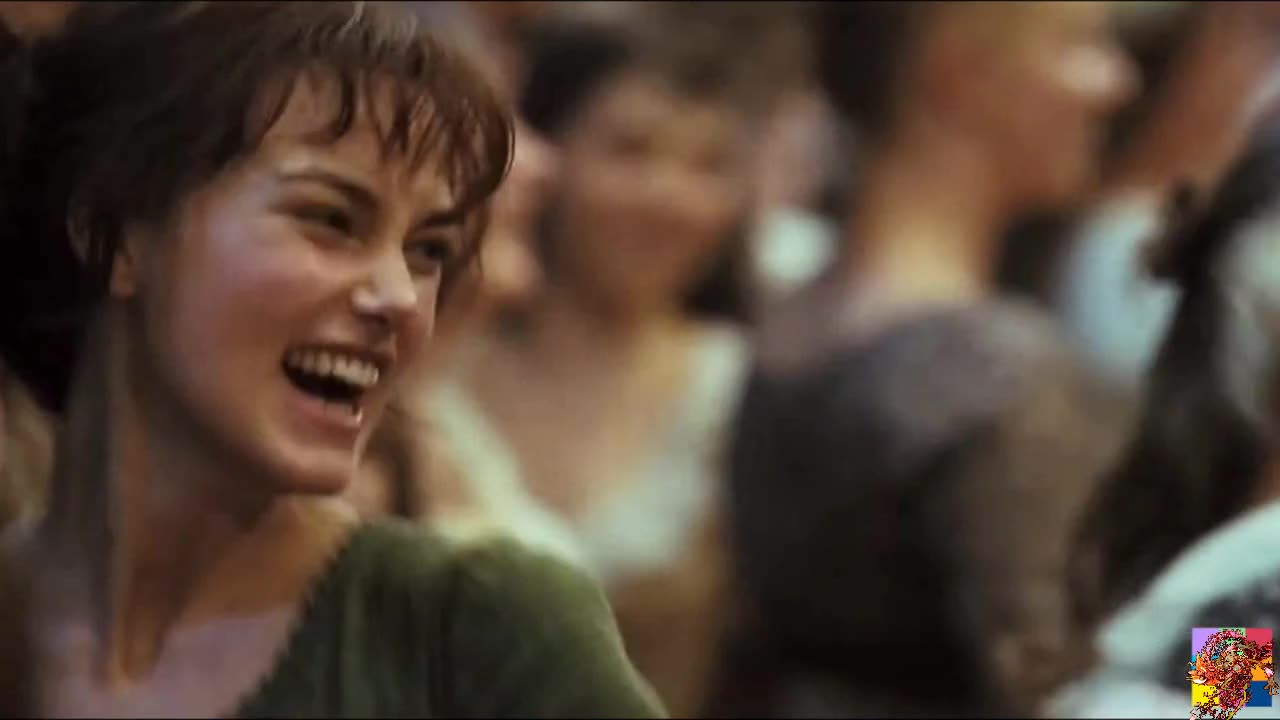
That's The Way (I Like It) I'm Your Boogie Man Get Down Tonight Kc And The Sunshine Band
That's The Way (I Like It) Album: KC and the Sunshine Band (1975)
I'm Your Boogie Man Album: Part 3 (1976)
Get Down Tonight Album: KC and the Sunshine Band (1975)
Boogie Shoes Album: KC And The Sunshine Band (1975)
by KC and the Sunshine Band
"That's The Way (I Like It)" was the second of an astounding five US #1 hits from KC & The Sunshine Band. Their first #1 was "Get Down Tonight," which gave them the template for songs like this one. Like all their hits, it was written by their bass player/producer Rick Finch and frontman Harry Wayne Casey.
Richard Finch explained, "We were all happy, and you could tell. We transferred the excitement of that hit feeling from 'Get Down Tonight,' and trust me, then we were all like, 'Oh, my God, this is amazing! We've done it! Let's put the magic on something else.' And you could definitely hear the excitement and the magic from that first hit record with 'That's The Way I Like It,' because we were all pumped, and we were all stoked. If you listen to that record closely, you can hear everyone smiling while they're singing. Especially the background singers. It was a very, very magic moment. I mean, we're in Miami, Florida, and we're in a little independent label, and we're becoming successful? C'mon, man, this is not possible, this must be a dream!"
That's The Way (I Like It) was originally recorded in a more suggestive manner by KC & The Sunshine Band before lead singer Harry Wayne Casey toned down the "uh-huhs," making them sound like cries of jubilation instead of moans of pleasure. In a Songfacts interview with Casey, he explained that the très risqué French song "Je T'aime... Moi Non Plus" by Jane Birkin and Serge Gainsbourg gave him the idea to make the "uh-huhs" rather sensual, but he thought better of it. "It was a little bit overboard," he said.
There's no mistaking the title in this one: it's repeated four times in each chorus, and that chorus opens and closes the song. This wasn't by accident: Harry Wayne Casey worked in a record store while he was earning his wings as a musician at TK Records. Customers would often come in looking for a song, but didn't know the name of it; Casey wanted to make sure that didn't happen to him.
He also had a revelation when listening to some Beatles albums. Casey wasn't a big fan of the group, but he heard how they would repeat a title over and over in songs like "She Loves You" and "I Want To Hold Your Hand."
That's The Way (I Like It) is one of the few in music history to reach #1 on the charts twice in the same month. First it was replaced at the #1 spot by "Fly Robin Fly" by Silver Convention, then replaced that song in turn, completing its three-week run.
As for the "controversial" lyrics, Rick Finch explained: "We had to tone down the words a little bit. It used to be called 'What You Want,' and I was like, 'No, KC. That's not commercial enough, people aren't gonna figure out what you're saying.'
Back then you had to watch what you say. Not like today. People come on the radio and cuss and say all kinds of s--t, but back then, you had to watch yo' mouth. You can be suggestive in a poetic way. It can mean whatever to whoever the listener is, and it doesn't really tie it down to any one thing or gender. So I figured that the more open you keep it, and unresolved, the more people you draw in."
Covers of That's The Way (I Like It) include a 1976 hit by Madeline Bell and a 1984 cover by the New Wave band Dead or Alive. Additionally, it's been sampled by rap artists Oaktown's 3.5.7 ("Get Loose"), Vanilla Ice ("The V.I.P. Posse 1 by 1"), 2 Live Crew ("Face Down, Ass Up"), and Luther Campbell (on his solo song "I Wanna Rock (Doo Doo Brown)").
A 1975 Time magazine article cited That's The Way (I Like It) as an example of "sex rock," naming it, along with Donna Summer's "Love To Love You Baby," as part of a new wave of sexually suggestive songs that were all the rage, but drawing opposition from conservative groups.
Opposition to "sex rock" was led by Jesse Jackson, who pressured industry leaders through his Operation PUSH (People United to Save Humanity) group, but didn't get very far.
Commercials to use this song include an early 1980s TV spot for Cadbury Crunchie candy bars (replacing the "uh huh uh huh" with "crunch-crunch-crunch-crunch"), a Crest toothpaste commercial, and a Burger King ad, both in the 1990s.
Films to use That's The Way (I Like It) include Night at the Museum: Battle of the Smithsonian, Happy Feet, Carlito's Way, Starsky & Hutch, From Justin To Kelly ("Kelly" being Kelly Clarkson) and Space Jam. Unfortunately for Finch, he signed a disastrous contract when he left the band, which stripped him of all future payments for the songs he wrote with Casey, so he doesn't see any money from the many commercial uses. At one point, his songwriter credit was removed from the record as well, and on the credits for Carlito's Way, he is not listed as one of the song's writers.
That's The Way (I Like It) is so elemental to the essence of KC & The Sunshine Band that Craig MacInnis titled his biography of H.W. Casey That's the Way I Like It.
Written by KC & The Sunshine Band bassist-producer Richard Finch and frontman Harry Wayne Casey, The "boogie" of I'm Your Boogie Man is in the sense of dancing, shaking your booty, and getting down, not with the scary kind of "boogie man." Casey, he told the story:
"'I'm Your Boogie Man,' in the initial writing of it I called it 'I'll Be A Son Of A Gun':
I'll be a son of a gun
Look what you've done
Then I went back and 'I'm Your Boogie Man' came into my head because I was thinking about how disc jockeys were always there on the radio. Like it says:
Early morning
Late afternoon
Or at midnight
It's never too soon
I'm your Boogie Man
It's taking the theme of the disc jockey being the one that's there for you all the time, no matter when. So it was as if I was a disc jockey, I'm the Boogie Man. Like if you call in and want to hear a certain song, or talk about what was going on in your life, I'm your Boogie Man. And of course I put in 'turn me on,' but that could also mean turned on the radio."
A specific DJ who influenced this song was Robert W. Walker at Y-100 in Miami, Florida, who was the first to give the group's hit single "Get Down Tonight" airplay. So Walker "was the Boogie Man that brought all the funk and the good feeling and the vibes to the people every morning," Rick Finch said.
Some DJs got offended after taking I'm Your Boogie Man the wrong way. In the '70s, "boogie man" was sometimes interpreted as a racial insult to a black man. At least one DJ, Frankie Crocker at WBLS in New York, canceled an interview with the group upon learning they were white. They were actually an integrated band, with Finch and Casey the only white members.
This was the fourth of five US #1 hits for KC & The Sunshine Band, who created a funky R&B sound with their first hit "Get Down Tonight" and used that as a template for more hits.
I'm Your Boogie Man was used in trailers for the Scary Movie franchise, which began in 2000. Other films to use this song include:
The Curse Of Bridge Hollow (2022)
Mr. Harrigan's Phone (2022)
The House I Live In (2012)
Watchmen (2009)
Superbad(2007)
Roll Bounce (2005)
Gun Shy (2000)
The People Vs. Larry Flynt (1996)
The Last Supper (1995)
TV uses of I'm Your Boogie Man include:
Scandal ("I'm Just A Bill" - 2015)
My Name Is Earl ("Boogeyman" - 2006)
Malcolm In The Middle ("Rollerskates" - 2000)
White Zombie did a sinister cover of this song for the 1996 film The Crow: City of Angels. The group also included the song on their album Supersexy Swingin' Sounds. Their version was also used on the TV shows Daria ("Pierce Me" - 1998) and 666 Park Avenue ("A Crowd Of Demons" - 2012).
Prior to the disco era, if someone in the music world claimed to be a boogie man, it would likely conjure an image of a piano player banging out a boogie-woogie rhythm rather than a DJ spinning out dance hits on the radio. The rolling eight-to-the-bar rhythm became popular in blues music of the 1920s and influenced other musical genres in the ensuing decades. The Andrews Sisters paid tribute to the style with "Boogie Woogie Bugle Boy" in 1941 and Bill Haley & His Comets sang about the origins of the boogie-woogie beat in the 1955 hit "Birth Of The Boogie." Lots of similarly titled tunes popped up on the Hot 100 until a new brand of boogie took hold with the rise of disco music when the word became synonymous with dancing on hits like "Boogie Fever" and "Boogie Nights."
On Part 3, the band's fourth studio album, I'm Your Boogie Man segues into "Keep It Comin' Love," which was also their next single.
"That was intentionally done," Casey explained of the track placement in The Billboard Book Of Number One Hits. "It worked real well. I guess that was just an extension of saying, 'I'm your boogie man, keep it coming.' A lot of people start something, and when it gets to the point where they would hit - they stop."
Written and produced by Harry Wayne (KC) Casey and his writing partner (and bass player) Richard Finch, Get Down Tonight takes place in a nightclub, where our hero is trying to convince a girl do some dancing, followed by some lovemaking. Casey and Finch would sneak into nightclubs in the Miami area and get a taste of that culture, which influenced their sound.
Harry Wayne Casey told the story behind this song. "'Get Down Tonight' was originally called 'What You Want Is What You'll Get,'" he said. "A lot of times I will have an idea of a song, and during recording I'll just sing whatever comes into my mind and then go back, and if I don't like that, will change it to another complete title. I do it a little bit differently now. I start with titles most of the time and already have the idea of what the title is going to be. But for that particular song and for 'I'm Your Boogie Man,' it was different.
My working title was 'What You Want Is What You'll Get,' and that's what I used during the recording of the record. Then I came back and decided to change it to 'Get Down Tonight.' I just thought, 'What are the things I like to do?' I love to dance, and so do other people. Do a little dance, make a little love, get down tonight.' It was just a story about life, about the things that one likes to do."
Get Down Tonight was the first of five US #1 hits for KC & The Sunshine Band. It also went to #1 on the R&B charts, not surprising since disco was really a funky form of R&B. According to Richard Finch, they knew they were creating a new sound, but it was based on what was happening on the charts and in the clubs. T.K. Records, where Finch and Casey worked, was both a recording studio and record distributor, which meant they could tell which records were selling, and then try recreating those sounds in the studio. Helping their cause were guitarist Jerome Smith and drummer Robert Johnson. Finch told Songfacts: "Jerome and Robert were the mainstay session cats at T.K. Records. These guys were on fire! They had this Funk Brothers thing going on, and I am very happy to have worked with these two very wonderful guys. They always had a sense of workability and openness - you could record with these guys on 12 different tunes and no two recordings would sound the same."
Get Down Tonight features a distinctive introduction, in which a recorded guitar solo is rendered at double speed over a normal-speed guitar line in the background. After observing someone else slowing down a tape machine, Richard Finch had the idea of using this technique to create the guitar riff, as a way of adding to the song something "that really keeps the buzz, that really keeps the excitement going all the way through without being too artificial sounding." Finch states that he was "always doing weird science" in those days, referring to his various experiments with sound.
Some of the movies in which this song has appeared include:
Ghosts of Girlfriends Past (2009)
Game Boys (2008)
The Education of Charlie Banks (2007)
Charlie's Angels: Full Throttle (2003)
Pirates of Silicon Valley (1999)
Arlington Road (1999)
Deuce Bigalow: Male Gigolo (1999)
Rush Hour (1998)
Doctor Dolittle (1998)
Arlington Road (1998)
Forrest Gump (1994)
An American Summer (1990)
Loser (2000)
Sid and Nancy (1986)
TV series to use Get Down Tonight include:
Scandal ("Nobody Likes Babies" - 2013)
The Big Bang Theory ("The Pulled Groin Extrapolation" - 2011)
One Tree Hill ("Luck Be a Lady" - 2010)
Big Love ("Circle the Wagons" - 2007)
ER ("Photographs and Memories" - 2007)
House ("Top Secret" - 2007)
The King of Queens ("Affidavit Justice" - 2003)
Futurama ("Crimes of the Hot" - 2002)
This song is part of some snappy dialogue in the 1996 Friends episode "The One With The Prom Video." After Ross takes a message from a guy named Casey calling for Rachel, he asks Chandler, "What does he want with her." Chandler's reply: "I'm guessing he wants to do a little dance, make a little love... pretty much get down tonight."
When you put on your boogie shoes, you're ready to party. In this song, our hero wants to take his girl out dancing until the sun comes up.
"Boogie Shoes" was part of the second (self-titled) KC & The Sunshine Band album, released in 1975. It was used as the B-side of the "(Shake, Shake, Shake) Shake Your Booty" single in 1976, but got its biggest audience when it was used in the 1977 movie Saturday Night Fever and featured on the soundtrack. In 1978, with all things Fever dominating the chart, it was released as a single, reaching #35 in the US.
Richard Finch, who wrote the song with lead singer Harry Wayne Casey, told Songfacts: "I never expected that record was going to wind up going on a movie soundtrack. But Robert Stigwood was a movie guy and he thought to use that in a scene where the shoes were a very big part of this disco façade thing that was coming out. Remember, back in the day it was all about high heeled rhinestone shoes, glimmering outfits and all that. We were also a part of that, we took advantage of it because it was the movement."
Films to use this song as part of the soundtrack include Boogie Nights (1997), Mallrats (1995), and Detroit Rock City (1999). In addition, it's appeared in the TV series Desperate Housewives and the short-lived (1998-2000) TV series Sports Night.
Fun Saturday Night Fever facts: It was a favorite film of the late film critic Gene Siskel, who saw it 17 times and bought John Travolta's white suit at a charity auction for $17,000. Parodies of the movie include a scene from Airplane!, a John Belushi sketch titled Samurai Night Fever, and The Goodies' episode Saturday Night Grease. And, this film is banned in Malaysia.
-
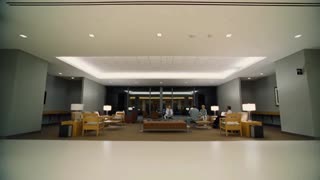 11:51
11:51
Psychological operations
18 days agoBrick One Angry Dwarf And 200 Solemn Faces Army Ben Folds Five
34 -
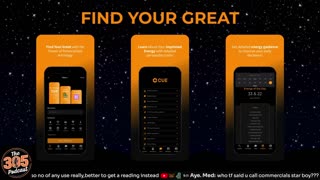 2:29:05
2:29:05
FreshandFit
6 hours agoOwen Shroyer leaves Alex Jones But Here's the Truth!
23.2K18 -
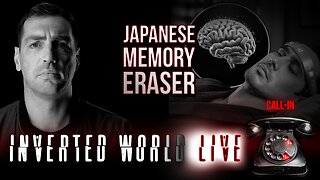 2:04:10
2:04:10
Inverted World Live
11 hours agoJapanese Memory Eraser | Ep. 101
105K19 -
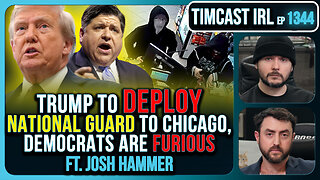 2:42:52
2:42:52
TimcastIRL
9 hours agoTrump To Deploy National Guard To Chicago, Baltimore, Democrats Call To Resist | Timcast IRL
229K101 -
 3:22:30
3:22:30
Laura Loomer
10 hours agoEP141: Muslims Call For Political Assassinations At Michigan Palestinian Conference
56.5K40 -
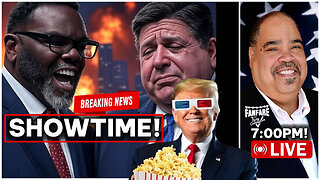 4:39:32
4:39:32
Barry Cunningham
11 hours agoBREAKING NEWS: PRESIDENT TRUMP IS GOING TO TAKE CHICAGO! LFG!!! (IT'S MOVIE NIGHT!)
98.3K66 -
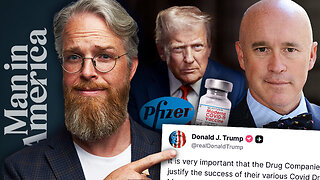 1:23:59
1:23:59
Man in America
13 hours agoTrump Demands Big Pharma Come Clean on Covid Shots w/ Dr. David Martin
59K50 -
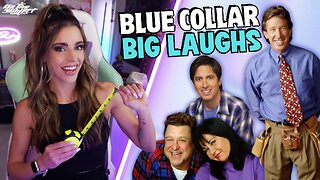 1:40:27
1:40:27
megimu32
8 hours agoOTS: Labor Day Sitcom Blowout - Tim, Ray, & Relatable Chaos!
46.1K5 -
 4:09:30
4:09:30
StevieTLIVE
8 hours agoWarzone Wins w/ FL Mullet Man
44.5K2 -
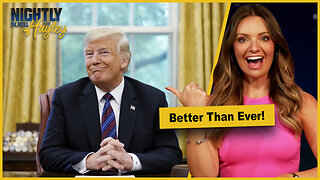 1:04:01
1:04:01
BonginoReport
12 hours agoLefties Wish Death on Trump but He’s BACK! - Nightly Scroll w/ Hayley Caronia (Ep.125)
199K85